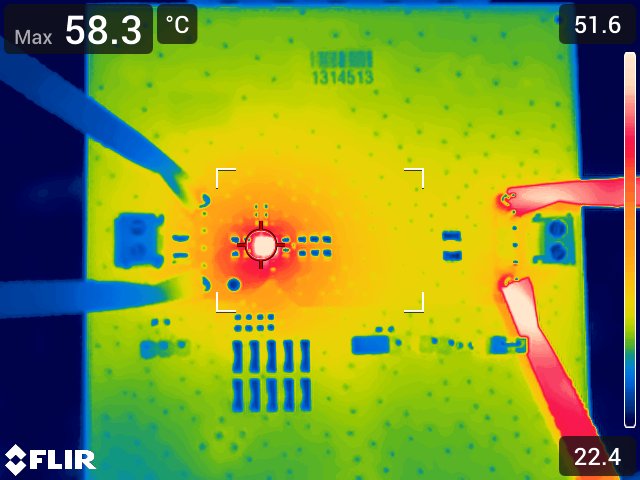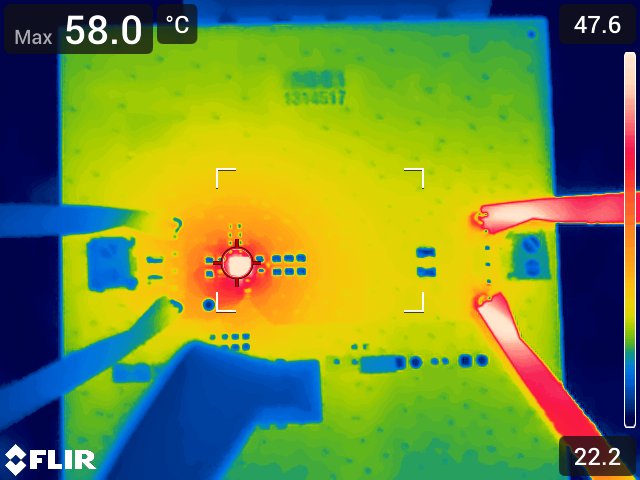SLUUD38 June 2024 TPSM82866A , TPSM82866C
4.2 Performance Data and Results
Figure 5-2 shows the thermal performance of the TPSM82866AA0PEVM.
 Figure 4-2 Thermal
Performance (TPSM82866AA0PEVM, VIN = 5V, VOUT = 1.2V,
IOUT = 6A)
Figure 4-2 Thermal
Performance (TPSM82866AA0PEVM, VIN = 5V, VOUT = 1.2V,
IOUT = 6A)Figure 5-3 shows the thermal performance of the TPSM82866CA3PEVM.
 Figure 4-3 Thermal
Performance (TPSM82866CA3PEVM, VIN = 5V, VOUT = 1.2V,
IOUT = 6A)
Figure 4-3 Thermal
Performance (TPSM82866CA3PEVM, VIN = 5V, VOUT = 1.2V,
IOUT = 6A)Figure 5-4 shows the loop response measurement of the TPSM82866 EVM.
 Figure 4-4 Loop Response Measurement (VIN = 5V, VOUT = 1.2V, IOUT = 6A)
Figure 4-4 Loop Response Measurement (VIN = 5V, VOUT = 1.2V, IOUT = 6A)